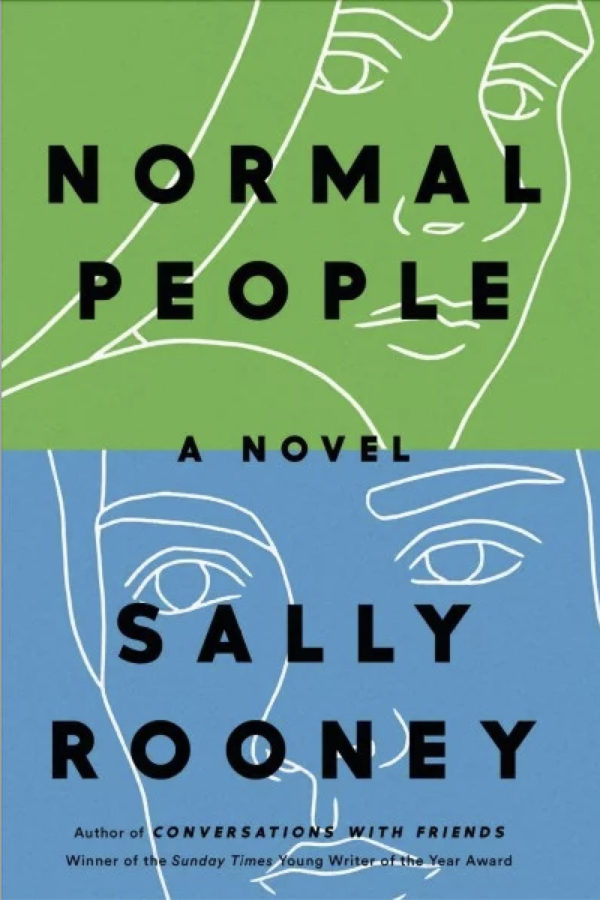‘Normal People’: a familiar critique of two average people living in an unequal society
I first discovered “Normal People,” the TV adaption to the 2018 novel by Sally Rooney, when it came out on Hulu (in April 2020), and it was one of the best television series I’ve ever seen. The show was beautifully done, with amazing scenery (which was mainly filmed in Ireland’s beautiful towns and cities) and with a gripping plot that pulled me in from the first scene. But what intrigued me the most was the intelligent dialogue. I had never seen a show that had such a normal dialogue between two people but was also so nuanced. When I found out the series was based on a book, I knew I had to read it.
Almost a year later, I read the book and it blew me away because the book and the series mirrored each other perfectly. I wasn’t used to seeing a TV adaptation that was so similar to the book it was based on. The book was as elegantly done as the TV show, which is why I love them both equally. Many TV adaptations I’ve seen have been unlike the book they’re based on, often eliminating important characters and scenes. “Normal People” was not like that; it made sense that some scenes were omitted because it would’ve been hard to portray those scenes on camera. Books often intertwine narratives; it is harder to do that in a film because scenes have to be more straightforward.
“Normal People” is a coming-of-age novel that looks at two people from the same small town. It follows Marianne and Connell from their late teens to early adulthood in a new vibrant city, where they go to attend college. It provides them with an opportunity to escape their tiny ignorant town and a chance to expand — to find themselves. The story examines their choices in relationships and the repercussions from it.
Marianne and Connell are complete opposites: Marianne has no friends while Connell is one of the most popular boys in school. Marianne is loud about her opinions while Connell is timid and is often worried if he’s saying the right thing. Marianne and her mom live in a big house while Connell’s mom is responsible for cleaning Marianne’s house. Yet, somehow, they form a connection with each other, bonding over books and politics, which then spirals into a quiet relationship between the two.
Throughout the book, their character traits change: Marianne begins to become more like Connell’s old self, becoming more self-conscious, while Connell begins to become more like Marianne’s old self, stealing her confidence and starting to put his anxiety behind him. They become paradoxes of each other, craving the question of what really happened between the two to intertwine themselves as to how they used to be. The characters trace this back to the idea of equality.
Marianne and Connell both desperately desire an equal society. Marianne doesn’t want to be seen as inferior to others because of her gender and how she expresses her sexuality. Connell doesn’t want to be seen as the working-class son who spends all of his free time working in order to make ends meet. Their problems are why they so easily grasp the idea of a Marxist utopian society based upon equality where socioeconomic status and gender are meaningless. They also touch on race, war, and privilege, ideas that would all be exonerated in their ideal society. They cling to these ideals and blame their relationship problems on the fact that they don’t live in a communist utopia.
What Marianne and Connell struggle to realize is that a majority of their problems don’t come from the capitalist society that they live in, but from a lack of communication. They struggle to talk about what they both want from each other, leading to an end of their relationship but told from different perspectives. Marianne and Connell both willingly say to themselves that they see each other as equal. They say they perceive each other as equals, throwing gender and socioeconomic status out the window. However, they still use ideas such as status or gender to their advantage when one of them is in need, conflicting with their Marxist ideas. This contradiction funnels the thought of why they cannot live in the perfect utopia that they envision. If Marianne doesn’t see Connell as poor, then why does she have her rich friends find him jobs when she doesn’t do the same for her other friends? If Connell doesn’t see Marianne as unequal to him, then why does he ignore her when they come across each other in public for the beginning stages of their relationship? By doing so, they ignorantly cling to their views that if people were equal, they wouldn’t have these problems. Yet, they fail to consider another side to their issues: a lack of communication. Then they fix their problems by communicating and making up for lost time but, they fail to realize that miscommunication is at the root of their problems.
Rooney expresses all these themes and ideas by showing the readers both perspectives. I believe that by doing this, the readers are able to get into the characters’ heads and start to empathize with them as they dig into the book. This is what makes the book so beautiful and it’s how I connected with the characters.
The book is short yet so dense every single scene feels important as it’s a chance to see how the characters interact with each other. This density concludes in a rather upbeat way as compared to the coldness felt with the rest of the book. Though, when I finished the book I didn’t feel that upbeatness, I was unsure of what to feel. Internally, my heart had been ripped out in a state of anguish but at the same time, I was emotionally distraught, unsure of what I had just read. I felt like I went on a journey with the characters because they’re so normal — so much like everyday people where I began to see people I knew as different characters in the book.
That very realness of the characters attracted me to the book, which was different from any other romance I’ve read. It wasn’t a happy Jane Austen book with a fairytale ending where socioeconomic status doesn’t matter, and it wasn’t a fantastical romance with hundreds of twists that don’t even make sense.
“Normal People” fits into its own subgenre because the characters and their experiences are so relatable. It’s the reason why I love it so much and why it’s the perfect contemporary read for any occasion.
Your donations directly fund the Lane Tech student journalism program—covering essential costs like website hosting and technology not supported by our school or district. Your generosity empowers our student reporters to investigate, write, and publish impactful stories that matter to our school community.
This website is more than a publishing platform—it's an archive, a research tool, and a source of truth. Every dollar helps us preserve and grow this resource so future students can learn from and build on the work being done today.
Thank you for supporting the next generation of journalists at Lane Tech College Prep!

Mara is a senior and this is her second year with The Champion. A creator at heart, Mara loves to read and write stories. She also loves creating art and...

